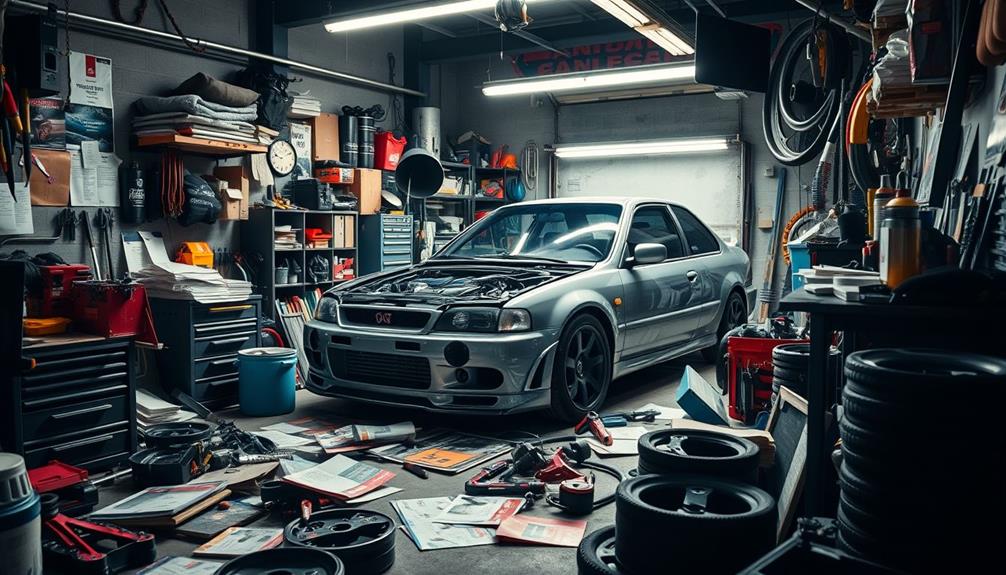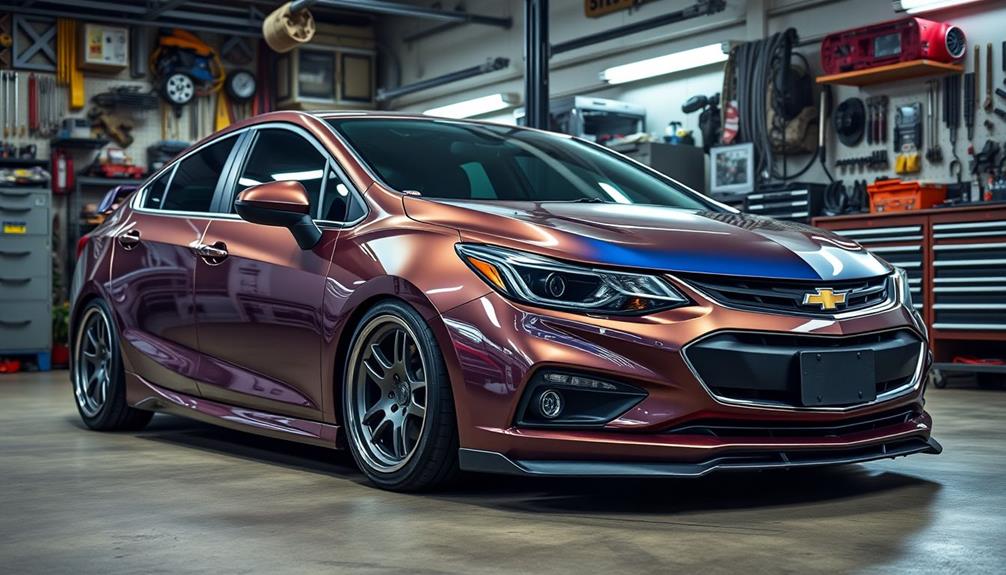Car tuning can be both challenging and rewarding. When you take on DIY mods, you can boost your engine's power by up to 30%, but it requires solid technical understanding and careful planning. You'll need to set clear goals and a realistic budget while steering through potential risks like voiding warranties or facing legal issues with emissions compliance. While you'll save on labor costs and gain a deeper knowledge of your vehicle, improper tuning can lead to increased wear and tear. If you think you're ready for this journey, you'll discover even more insights about the process ahead. When considering car tuning, it’s important to weigh the car tuning pros and cons. Some pros include the potential for increased horsepower, improved fuel economy, and a more personalized driving experience. On the other hand, some cons to consider are the possibility of reduced reliability, warranty issues, and the cost of modifying and maintaining the vehicle. It’s important to carefully research and weigh these factors before diving into car tuning.
Key Takeaways
- DIY car tuning can be rewarding, providing a sense of empowerment and control over your vehicle's performance and aesthetics.
- Access to user-friendly ECU tuning software makes performance enhancements more approachable for beginners.
- Challenges include understanding complex vehicle mechanics and potential risks of improper modifications leading to engine wear.
- Legal considerations, such as emissions compliance and warranty impacts, add complexity to the tuning process.
- Setting clear goals and a realistic budget can help navigate the challenges while maximizing the rewards of tuning.
Overview of Car Tuning
Car tuning opens up a world of possibilities for vehicle enthusiasts looking to enhance performance and aesthetics. With car tuning, you can modify your vehicle's engine control unit (ECU) through remapping, leading to an impressive boost in engine power—sometimes by up to 30%. This improvement directly translates to enhanced horsepower and torque, giving you that thrilling driving experience you crave.
Beyond performance, car modifications also allow you to personalize your ride. Aesthetic changes, like body kits and custom paint jobs, can elevate the look of your vehicle while still focusing on functional upgrades to improve performance.
Additionally, tuning can enhance fuel economy considerably, with potential gains of 10-20%. This means you can enjoy a more responsive ride without sacrificing efficiency, making it an economically savvy choice.
However, it's essential to take into account local regulations because certain modifications can affect emissions compliance, possibly voiding your manufacturer warranties.
Embracing automotive technology through tuning can be incredibly rewarding, but make sure you navigate these challenges wisely to fully enjoy the benefits of your car modifications.
Benefits of DIY Tuning

The thrill of DIY tuning lies in its empowering nature, allowing enthusiasts like you to take control of your vehicle's performance and aesthetics. One major benefit is the potential to save on labor costs, which can range from hundreds to thousands of dollars when opting for professional services.
With ECU tuning software readily available, you can enhance your vehicle's engine performance from the comfort of your garage, using tools like Integrated Engineering's POWERlink cable for straightforward adjustments. Additionally, understanding the basics of common financial terms can help you budget effectively for your DIY projects, ensuring that you invest wisely in modifications.
As a car enthusiast, engaging in DIY tuning not only improves power and torque but also fosters a deeper understanding of your vehicle's mechanics. You'll learn to troubleshoot and modify effectively, enhancing your technical skills and knowledge.
Successful tuning can lead to impressive performance gains, such as increasing horsepower by up to 30%, greatly improving acceleration and overall driving experience without major modifications.
Furthermore, many DIY tuning solutions allow you to revert to factory settings, providing peace of mind and preserving your vehicle's reliability and warranty options.
Potential Drawbacks of Tuning
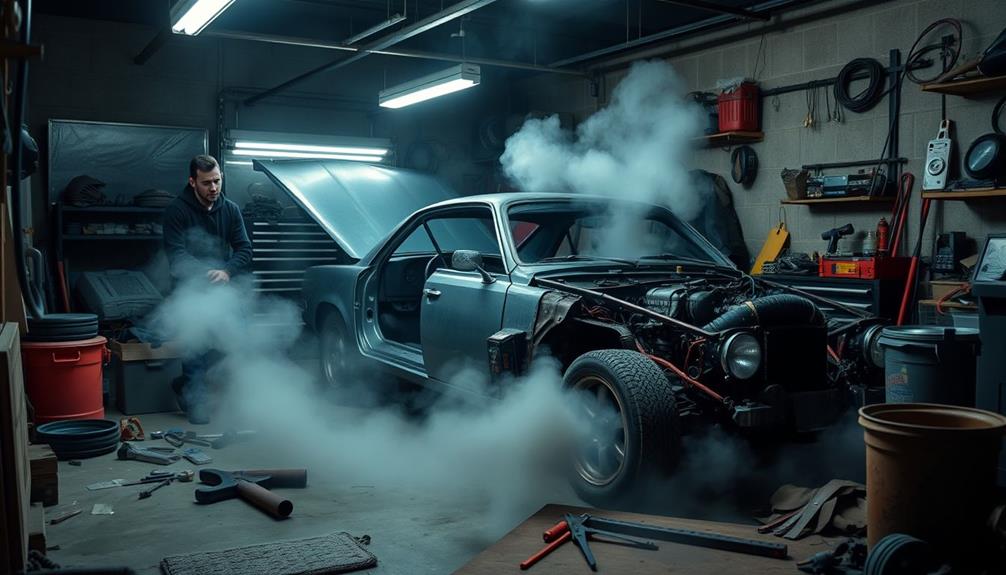
Tuning your vehicle can come with hidden pitfalls that might catch you off guard. While the allure of enhanced performance is tempting, you need to contemplate the potential drawbacks before diving in.
- Warranty Issues: Modifying your car often voids the manufacturer's warranty. This means any engine problems that arise post-tuning could lead to costly repairs you'll have to pay out of pocket.
- Increased Wear and Tear: Improper tuning or ECU remapping can strain your engine, leading to accelerated wear and a shorter lifespan for critical components.
- Resale Value: Modified cars can face a decrease in resale value. Limited buyer interest may arise, especially if your modifications don't appeal to potential buyers.
- Emissions Compliance: Tuning can result in increased emissions, which might lead to legal troubles, including fines or failing emissions inspections if your modifications don't comply with local regulations.
In short, while tuning can yield impressive results, the risks associated with your car's warranty, engine reliability, resale value, and emissions control must be carefully weighed.
Essential Planning for Modifications
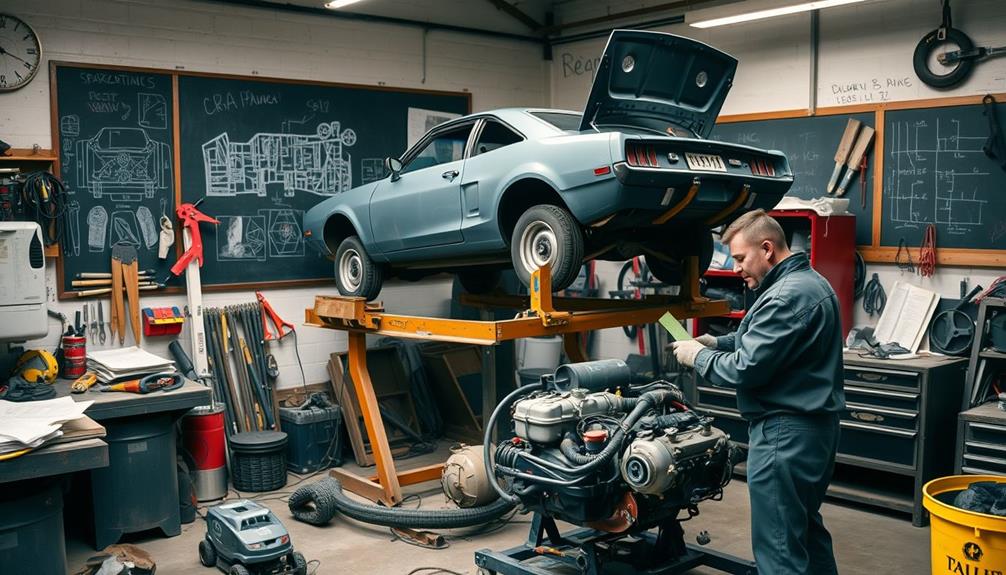
Before diving into the world of modifications, it's vital to establish clear goals for your project. Decide if you're aiming to boost performance, enhance aesthetics, or achieve a combination of both. This clarity will guide your planning and decision-making.
Next, setting a realistic budget is imperative. Costs for car modifications can vary greatly; simple upgrades might start at a few hundred dollars, while complex changes can easily run into thousands.
Be prepared to adjust your plans based on your financial limits.
Also, consider how your modifications might affect your vehicle's warranty. Many changes can void manufacturer guarantees, especially in newer models, so weigh this risk against the benefits you hope to attain.
Visualizing the end result can help you stay focused throughout the process. Keep your overall vision for the vehicle in mind to make sure each modification aligns with your goals.
Legal Considerations for Tuning
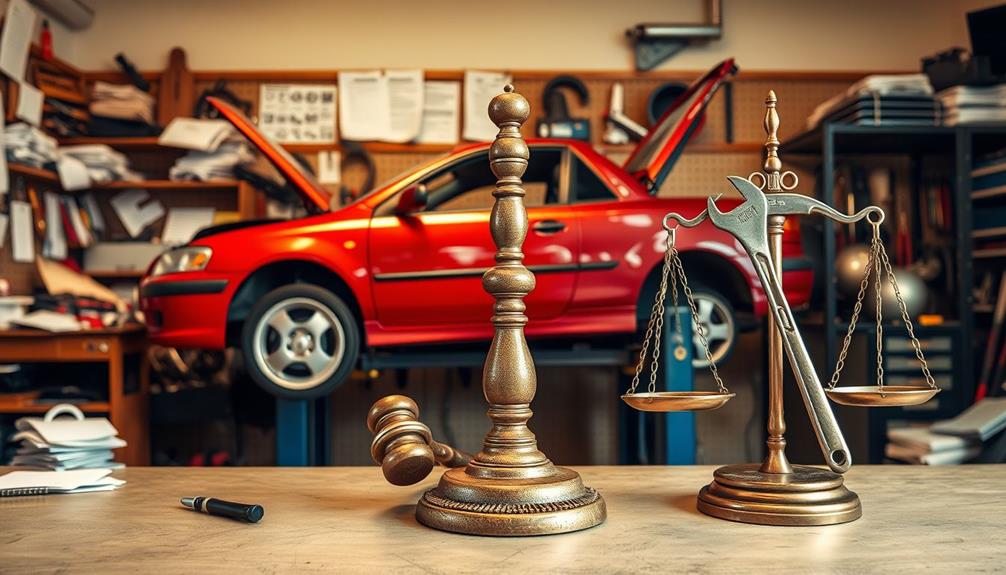
Steering through the legal landscape of car tuning is essential, as modifications can easily lead to penalties if they're not compliant with local regulations.
Understanding the legal implications of your modifications can save you from costly mistakes. Here are four key considerations to keep in mind:
- Emissions Standards: Verify your modifications, especially exhaust systems, meet local emissions regulations. Non-compliance can lead to fines or vehicle impoundment.
- Window Tinting Laws: Familiarize yourself with state-specific laws regarding window tint darkness and reflectivity. Each state has its own limits, and violating them could result in penalties.
- Documentation: Always keep thorough documentation of all modifications. This can demonstrate compliance during inspections or legal inquiries, providing peace of mind.
- Travel Awareness: If you travel with modified vehicles, be aware that laws vary by state. What's legal in one state mightn't be in another, so do your homework to avoid issues.
Staying informed about these factors will help you enjoy the power of your tuned car while minimizing potential legal troubles.
Frequently Asked Questions
Is It Hard to Tune a Car Yourself?
Tuning a car yourself can be quite challenging. You'll need a solid grasp of mechanics and access to specialized tools. It takes time to learn, experiment, and troubleshoot issues that come up during the process.
What Are the Disadvantages of Tuning a Car?
Tuning a car's like planting a delicate seed; it can bloom beautifully but may also wilt. You risk voiding warranties, facing higher maintenance, and encountering legal issues while potentially decreasing your vehicle's resale value.
Is Car Tuning Safe?
Car tuning isn't inherently unsafe, but it can become risky if you don't perform modifications correctly. Always research thoroughly, consider professional help, and guarantee compliance with safety and regulatory standards to protect yourself and your vehicle.
Is Chiptuning Worth It?
Imagine releasing hidden power within your engine—chiptuning's worth it! You'll enjoy better acceleration and improved fuel efficiency, all while keeping your factory settings intact. Just guarantee you choose a reputable provider to avoid potential issues.
Conclusion
In the world of car tuning, the challenges can feel like maneuvering through a dense forest, but the rewards are just as exhilarating as finding a hidden path. By embracing DIY modifications, you not only enhance your ride's performance but also deepen your connection to it. Just remember, careful planning and awareness of legalities are essential to avoid pitfalls. So, grab your tools, get creative, and enjoy the journey of transforming your car into something uniquely yours!
